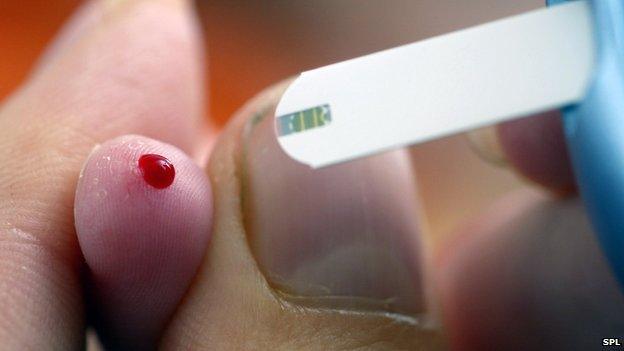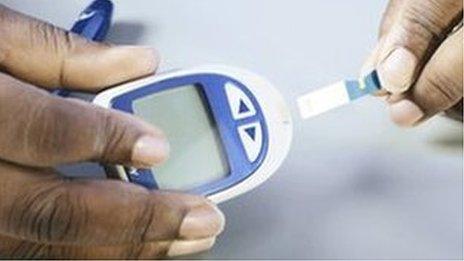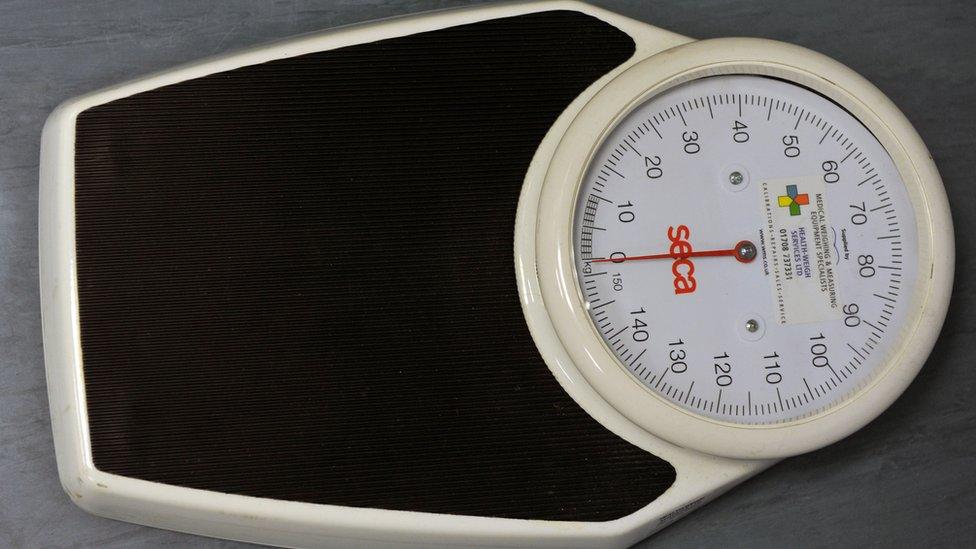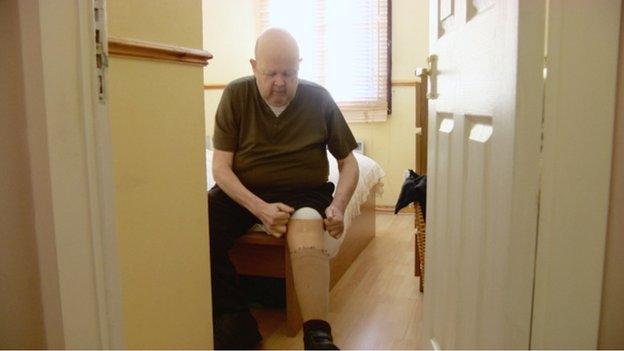£230m obesity and diabetes drugs cost 'harms NHS'
- Published

Nearly a quarter of a million people in Scotland have diabetes, with the majority suffering from Type 2
NHS Scotland has spent nearly £230m on drugs to treat diabetes and obesity within three years, figures have shown.
The diabetes drugs bill was £75.7m in 2013-14, £73.2m last year and £74.2m in 2011-12. Another £6.1m went on obesity prescriptions in the three-year period.
The figures were obtained by the Tories, who said the conditions were harming both sufferers and the NHS.
The Scottish government said obesity and diabetes were on the rise across Europe and Scotland was no exception.
It said the problem was being taken seriously and a range of measures had been implemented to try to tackle it.
The most recent statistics suggested nearly a quarter of a million people in Scotland now have diabetes, almost 5% of the population.
The majority of sufferers, about 220,000, have type 2 diabetes.
Obesity is the biggest risk factor driving the disease, which develops when the insulin-producing cells in the body are unable to produce enough insulin, or when the insulin that is produced does not work properly.
A different form of diabetes - type 1 - is caused by the body's own immune system rebelling and destroying the cells needed to control blood sugar.
A total of 3.34 million items were dispensed to treat diabetes in Scotland in 2013-14.
'Alarming rate'
The official figures revealed that obese patients were prescribed more than 52,000 items in the same period - about 1,000 a week - at a cost of £1.9m.
That is up from the cost of £1.5 million in 2012-13, but lower than the previous year, when £2.7 million was spent on obesity prescriptions.
Conservative health spokesman, Jackson Carlaw, who obtained the figures, said: "Of course, not every case of diabetes is related to weight, there are a range of reasons.
"But the fact prescriptions for both diabetes and obesity are rising at an alarming rate year-on-year cannot be ignored.
"While we need the NHS and Scottish government to do all they can to force through messages on healthy living, it isn't just down to them.
"There has to be a level of personal responsibility.
"Obesity generally isn't something you catch on a bus, and people know that a healthy diet and active lifestyle are what's required to keep the weight down.
"If they don't, diabetes is just one of the serious conditions lurking round the corner."
'Serious issue'
A Scottish government spokesman said: "Our diabetes action plan, which will be updated this summer, sets out a clear commitment to the prevention and early detection of diabetes and to improve the treatment and care of people with diabetes.
"Although the number of people with Type 2 diabetes has increased in the last year, the number of prescriptions per person has remained at the same level.
"We recognise that obesity is a serious issue and are taking a range of measures to make it easier for people to be more active, to eat less, and to eat better.
"We are supporting child healthy weight interventions and are increasing opportunities for children to get involved in sport and physical activity, through active schools and our target of all primary children having two hours of PE lessons a week.
"We also recently announced a £50m investment in school sport."
- Published23 December 2013

- Published26 November 2013

- Published24 June 2013
